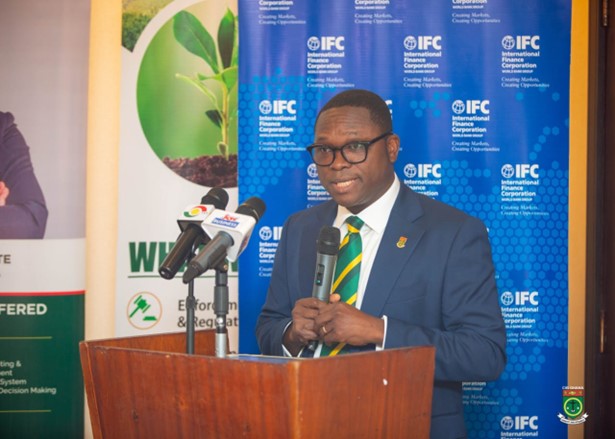… to promote sustainable finance
The Chartered Institute of Bankers (CIB) Ghana has launched an Environmental, Social, and Governance (ESG) certification programme, marking a significant milestone in the nation’s financial sector.
Developed in collaboration with the International Finance Corporation (IFC), the Environmental Protection Agency (EPA) Ghana, and the Swiss State Secretariat for Economic Affairs (SECO), this initiative aims to embed sustainability principles into financial decision-making, aligning Ghana’s banking practices with global standards.
Elsie Addo Awadzi, Second Deputy Governor of the Bank of Ghana described the initiative as a move in the right direction. She was optimistic that the CIB ESG certification course will have a transformative impact on Ghana’s financial sector, promoting sustainable finance and responsible investment.
“I strongly encourage the industry to take full advantage of this, and to call on educational institutions to partner with CIB to make this even stronger,” she added.
As the first ESG certification of its kind in Ghana, she urged the Institute to uphold the high standards established and encouraged industry practitioners to leverage the program to develop essential ESG competencies.
Robert Dzato, CEO of CIB Ghana, stressed the importance of the programme in the context of Ghana’s domestic environmental challenges. “Recent developments in our domestic environment, such as the degradation of land and water bodies, have made the need for this programme even more urgent. Financial institutions must play a pivotal role in addressing these issues,” he said.

He emphasised the extensive collaboration and preparation behind the programme. Mr. Dzato further highlighted the programme’s role in managing emerging risks and fostering responsible business practices.
The ESG certification course is structured into six comprehensive modules, across a 10-week period covering essential topics such as sustainable finance frameworks, environmental risk management, social impact assessment, corporate governance, regulatory compliance, and ethical investment strategies.
This curriculum aims to equip financial professionals with the knowledge and tools necessary to integrate ESG principles into their decision-making processes effectively.
Mr. Dzato also warned that businesses neglecting ESG principles risk missing out on significant opportunities.
“Neglecting ESG considerations is not just a moral oversight; it’s a strategic misstep. Businesses that fail to integrate ESG into their operations will find themselves at a competitive disadvantage,” he added.
The programme was particularly designed for senior frontline staff, ESG managers, segments heads, internal auditors, compliance managers, risk managers in financial institutions. Independent consultants will also benefit from the programme.
Kyle Kelhofer, IFC’s Senior Country Manager for Ghana, Liberia, and Sierra Leone, underscored the program’s transformative potential and alignment with global standards.
“ESG principles are the bedrock of our investment philosophy and business operations,” Mr. Kelhofer stated, urging active engagement from industry stakeholders to enhance the programme continually.
Dr. John Kingsley Krugu, CEO of EPA Ghana, on his part highlighted the urgent need to address environmental and social challenges such as climate change, biodiversity loss, and social inequality.
He expressed optimism about the course’s impact, urging participants to embrace sustainability principles to create shared value for future generations.
“As we embark on this journey together, let us inspire each other to embrace the principles of sustainability as an opportunity to create shared value for generations to come,” he urged.










